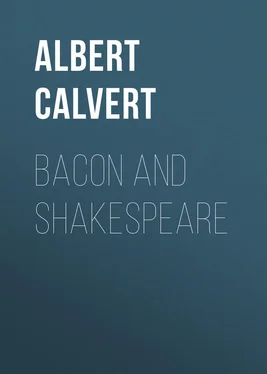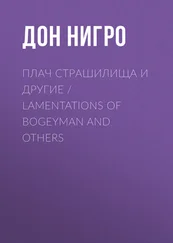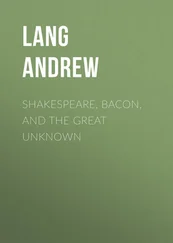Albert Calvert - Bacon and Shakespeare
Здесь есть возможность читать онлайн «Albert Calvert - Bacon and Shakespeare» — ознакомительный отрывок электронной книги совершенно бесплатно, а после прочтения отрывка купить полную версию. В некоторых случаях можно слушать аудио, скачать через торрент в формате fb2 и присутствует краткое содержание. Жанр: foreign_antique, foreign_prose, на английском языке. Описание произведения, (предисловие) а так же отзывы посетителей доступны на портале библиотеки ЛибКат.
- Название:Bacon and Shakespeare
- Автор:
- Жанр:
- Год:неизвестен
- ISBN:нет данных
- Рейтинг книги:5 / 5. Голосов: 1
-
Избранное:Добавить в избранное
- Отзывы:
-
Ваша оценка:
- 100
- 1
- 2
- 3
- 4
- 5
Bacon and Shakespeare: краткое содержание, описание и аннотация
Предлагаем к чтению аннотацию, описание, краткое содержание или предисловие (зависит от того, что написал сам автор книги «Bacon and Shakespeare»). Если вы не нашли необходимую информацию о книге — напишите в комментариях, мы постараемся отыскать её.
Bacon and Shakespeare — читать онлайн ознакомительный отрывок
Ниже представлен текст книги, разбитый по страницам. Система сохранения места последней прочитанной страницы, позволяет с удобством читать онлайн бесплатно книгу «Bacon and Shakespeare», без необходимости каждый раз заново искать на чём Вы остановились. Поставьте закладку, и сможете в любой момент перейти на страницу, на которой закончили чтение.
Интервал:
Закладка:
Albert F. Calvert
Bacon and Shakespeare
Preface
To anticipate for this little book that it may prove the means of convincing a single Baconian of the error of his ways, would be to express a hope that has only the faintest chance of realisation. Baconianism is so wilful and so obstinate that it is not amenable to any treatment that has yet been invented. It has its root in an entire misconception of the character and temperament of the man Bacon; it is nourished on the grossest misrepresentation of the man Shakespeare that the memory of an author has ever been subjected to. So long as the fallacy, backed up by specious argument, was confined to the consideration of the mighty few, it was scarcely necessary to enter into the lists with the Baconian champions, but the new and energetic move which is now being made to cast down Shakespeare from the “topmost pinnacle in the temple of fame,” and to set up the figure of Bacon in his stead, has had the result of bringing the subject once more into public view. In the circumstances, the publication of the following summary of the evidence may be found not inopportune. It may not effect a cure in the case of confirmed Baconians, but I have a modest hope that it will enable the unprejudiced inquirer to be on his guard against the hallucination. The Baconians have woven a cunning mesh of fact and fable to entangle the mind of the unwary; the task I have set myself is to review the premises, test the arguments, and combat the conclusions upon which Bacon’s pretensions to the authorship of Shakespeare’s plays is alleged to rest, and to explain the reasons that we hold for ascribing the authorship of the Plays to Shakespeare.
While the majority of Shakespearean students are impatient of discussion, the disciples of the Baconian theory are prompt and eager and voluminous in the propagation of their arguments. Indeed, they have, all along, had the lion’s share in the controversy, and by their much speaking, have stormed the ears of that section of the public which neither thinks for itself, nor will be at the trouble to verify what it is told. Bacon has been born again in the biographies of his devotees, and Shakespeare, by the same agency, has been edited out of recognition. Bacon’s brilliant intellectual qualities have been taken as the basis of all argument, the human and temperamental side of his character has been boldly made amenable to the exigencies of argument, and his many glaringly reprehensible actions have been carefully ignored. I have endeavoured, in the ensuing pages, not so much to give a picture of the complete man, as to show what he was capable of in the way of selfishness, trickery and subterfuge. He was capable of the basest ingratitude and meanness, of the employment of barbarity when it suited his purpose, of unctuous servility and boundless egoism. He had neither the temperament nor the poetical ability nor the time to write the Plays; had he the meanness of spirit to claim them as his own? We shall see!
The conclusions I have formed with respect to the two cipher revelations which are now agitating the minds of both Shakespeareans and Baconians are derived partly from my estimate of the character of Bacon, partly from the apparent sincerity of Mrs. Gallup, and partly again from what I know of other and entirely independent decipherations of further Bacon messages, which are now being actively made in this country. Of Mrs. Gallup I only know that which her book and her publishers reveal. Of Dr. Orville W. Owen, the discoverer of the word-cipher I learn, from an American source, quoted by way of a testimonial in one of the doctor’s books, that he is “a man who has reached middle age,” and who has “never shown the slightest sign of possessing unusual or extraordinary literary skill, or genius.” In other words, his sponsors assure us that he is incapable of writing those portions of Shakespeare which form so great a part of his decipherations, or even the connecting passages which appear to have been contributed by Bacon. We must accept this opinion as a tribute of personal character.
Concerning the illustrations, I may be allowed to say a few explanatory words. The two photogravure reproductions are taken respectively from a miniature by Peter Oliver, belonging to the Duke of Buccleuch, and from a very rare print of Bacon. The print from Vansomer’s painting, the picture of Bacon’s monument, and the portraits of Sir Nicholas Bacon, Sir Nathaniel Bacon, the Earl of Essex and Queen Elizabeth, and the views of Stratford-on-Avon and Gorhambury will, I trust, be found of general interest. The facsimile pages from “Sylva Sylvarum” and the “Novum Organum,” with their allegorical devises and fine workmanship, illustrate the contrast between the manner in which the works of Bacon and those of Shakespeare were given to the world. The portraits of Shakespeare contained here are well known to students. The reproduction of the bust will be familiar to all visitors to Stratford, the “Droeshout” Engraving is the picture which forms the frontispiece to the First Folio, and the original of the Chandos portrait is now in the National Portrait Gallery.
Albert F. Calvert. “Royston,” Eton Avenue, London, N.W.Bacon, the Product of His Age
It is impossible to sympathise with, or even to regard seriously, the spirit in which a small, but growing section of the reading public of America, and of this country, has plunged into the controversy respecting the authorship of the so-called Shakespeare plays. The fantastic doubt which compelled individual scholars to investigate a theory of their own inventing, to lay, so to speak, the ghost they had themselves raised, has inspired distrust in the minds that had no beliefs, and generated scepticism in those where no faith was. The search for the truth has degenerated into a wild-goose chase; the seekers after some new thing have made the quest their own; ignorance has plagiarised from prejudice; the “grand old Bacon-Shakespeare controversy,” as Whistler said of Art, is upon the town – “to be chucked under the chin by the passing gallant – to be enticed within the gates of the householder – to be coaxed into company as a proof of culture and refinement.” The difficulties that such a controversy present to the tea-table oracles are both numerous, and exceeding obstinate. The people who read Shakespeare form a pitiably insignificant proportion of the community, but they are multitudinous compared with those who have the remotest acquaintance with the works of Francis Bacon. Bacon is known to some as Elizabeth’s little Lord Keeper, to others his name recalls the fact that he was James the First’s Lord Chancellor, but outside his Essays , and, perhaps, The New Atlantis , his great philosophical dissertations, the pride and treasure which he so carefully preserved in Latin, lest they should be lost in the decay of modern languages, are a sealed book to all, except a few odd scholars at the Universities. Bacon is an extinct volcano. The fact is not creditable to the culture of the age, but it is incontrovertible.
It has, on this account, been found necessary for Baconians to describe to their readers what manner of man this was whom they would perch on Shakespeare’s pedestal, and they have accomplished their task in the manner best calculated to lend plausibility to their theories. Moreover, they have displayed a subtle appreciation of the magnitude of their undertaking. The Shakespeare plays, in common with all great works, reflect in some degree the personality of their creator. The Baconian students cannot deny that there are many characteristics in their candidate which only the most devout can reconcile with the spirit of the plays. It, therefore, became further necessary to ring the changes on their candidate; to employ the arguments of induction and deduction as best suited the exigencies of the task. In creating the idol of Bacon, much had to be read into the subject, and it would seem that the simplest method by which they could advance the claims of Bacon was by discrediting the claims of Shakespeare. In estimating the character of Viscount St. Alban, we have the solid foundation of fact for our guidance; the personal details of Shakespeare’s career may be written upon a page of note paper. The original Baconians seized upon these few details to distort them to their own ends, and their followers have done their best to perpetuate the outrage.
Читать дальшеИнтервал:
Закладка:
Похожие книги на «Bacon and Shakespeare»
Представляем Вашему вниманию похожие книги на «Bacon and Shakespeare» списком для выбора. Мы отобрали схожую по названию и смыслу литературу в надежде предоставить читателям больше вариантов отыскать новые, интересные, ещё непрочитанные произведения.
Обсуждение, отзывы о книге «Bacon and Shakespeare» и просто собственные мнения читателей. Оставьте ваши комментарии, напишите, что Вы думаете о произведении, его смысле или главных героях. Укажите что конкретно понравилось, а что нет, и почему Вы так считаете.












